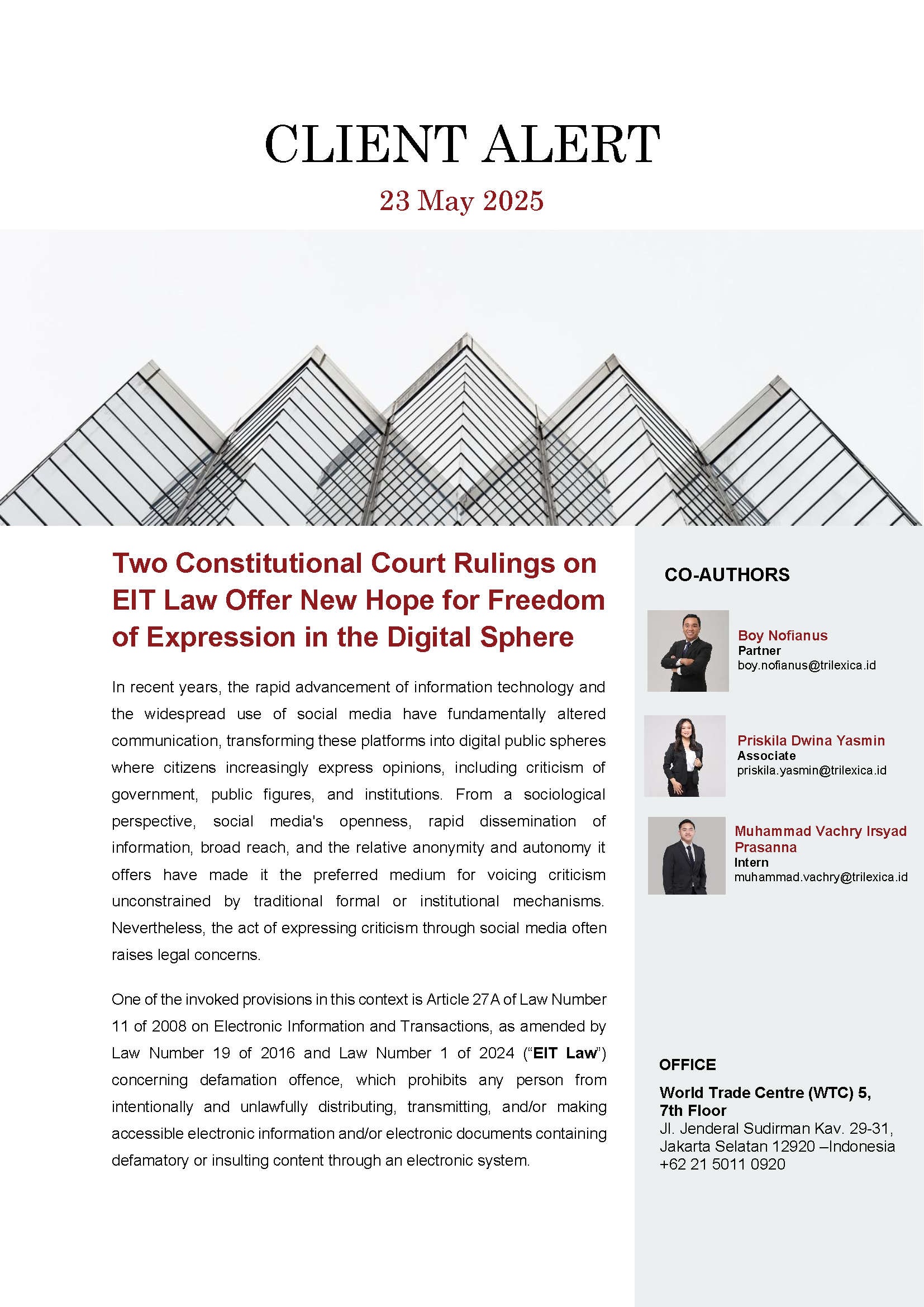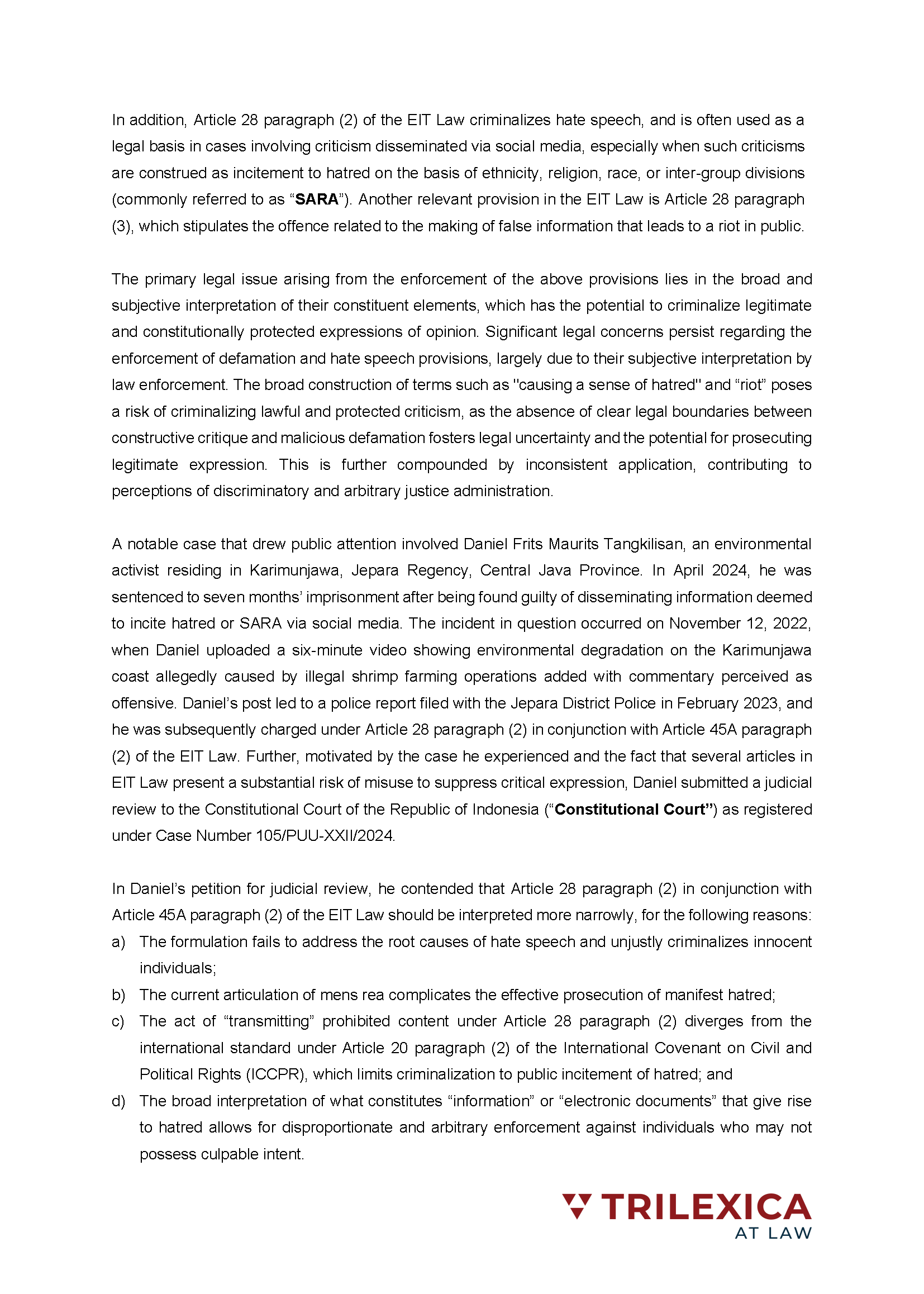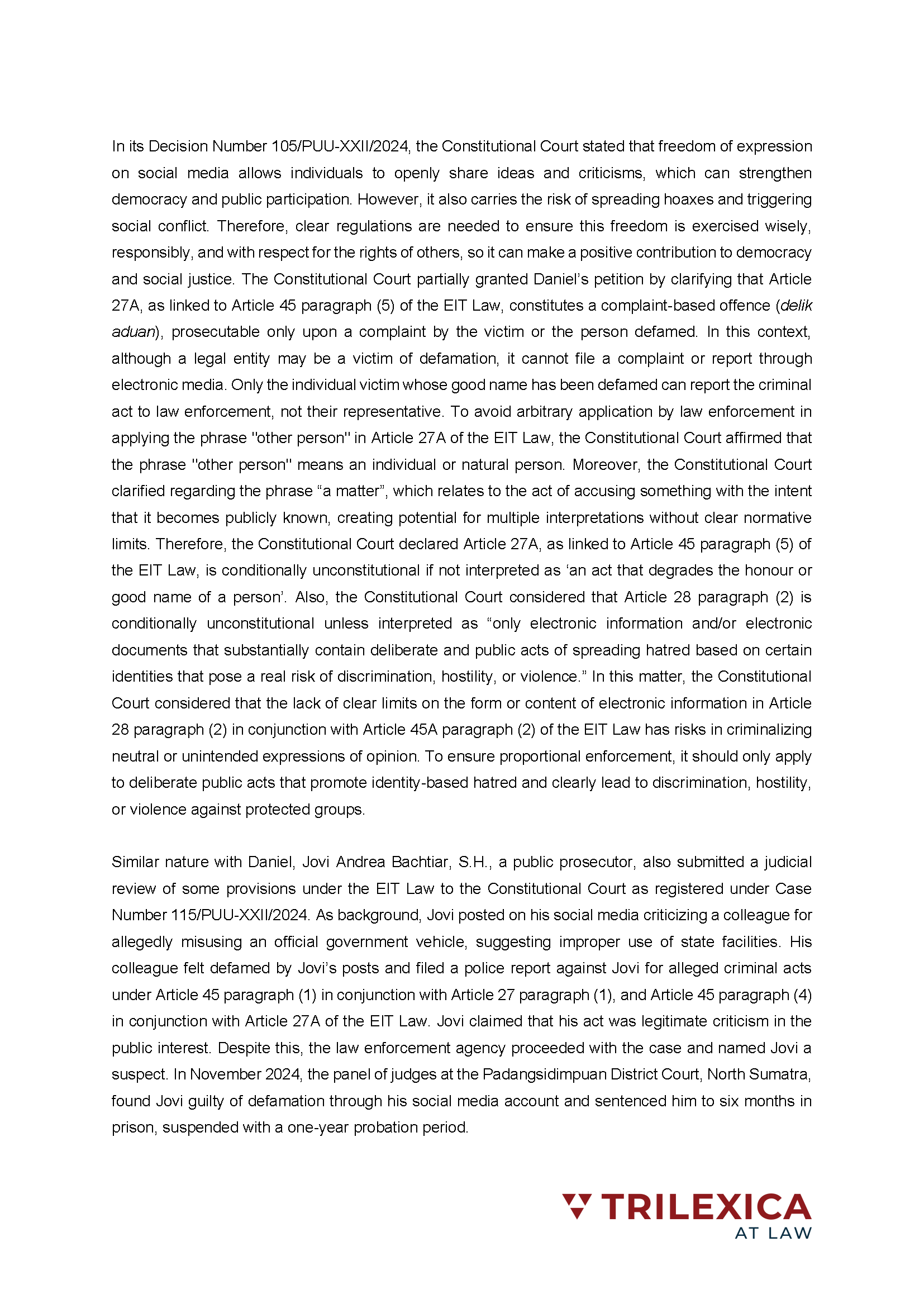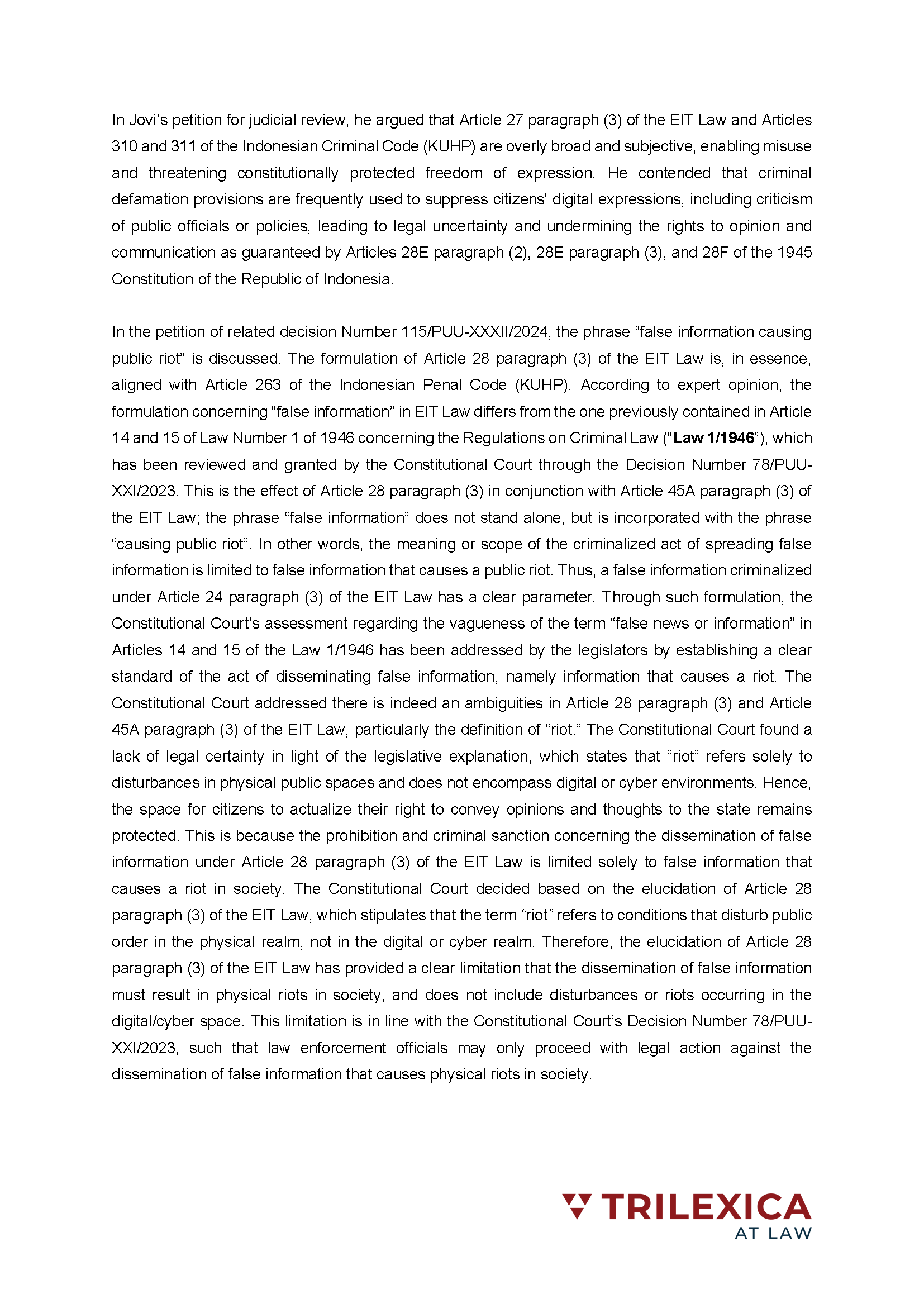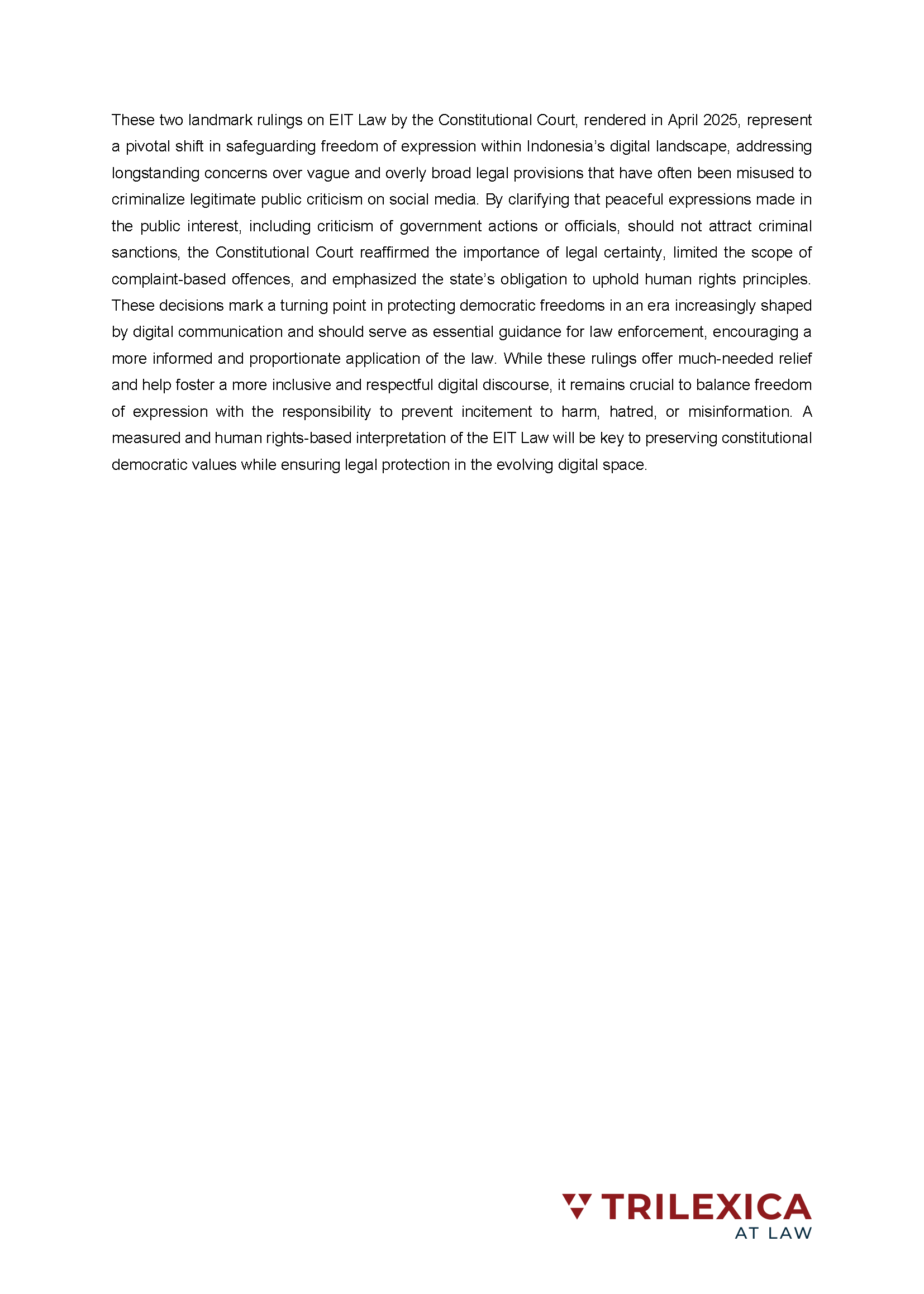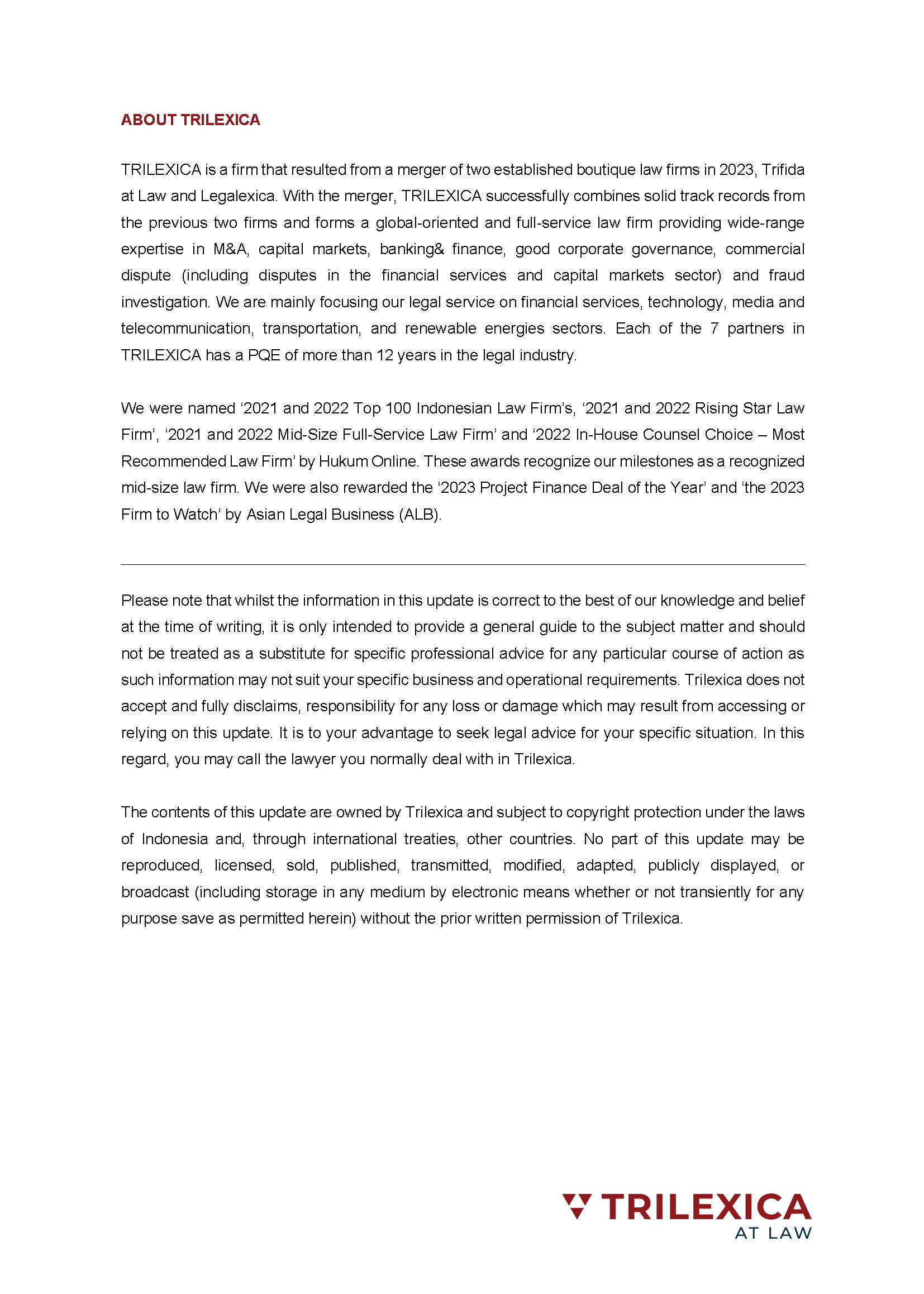Two Constitutional Court Rulings on EIT Law Offer New Hope for Freedom of Expression in the Digital Sphere
In the latest TRILEXICA’s Client Alert, Litigation & Dispute Commercial Team, Partner Boy Nofianus along with Associate Priskila Dwina Yasmin and Intern Muhammad Vachry Irsyad Prasanna, discuss two pivotal rulings issued by Indonesia’s Constitutional Court in April 2025 that reshape the legal contours of the Electronic Information and Transactions (EIT) Law. The Constitutional Court clarified that defamation under Article 27A of the EIT Law is a complaint-based offense limited to individual victims, not institutions or their representatives. In its interpretation of Article 28 paragraph (2) of the EIT Law, the Court emphasized that expressions conveyed in the public interest, so long as they do not incite violence, hatred, or public disorder, fall within the scope of constitutionally protected speech. Furthermore, the Constitutional Court ruled that criminal liability under Article 28 paragraph (3) of the EIT Law for the dissemination of false information requires demonstrable causation of a physical riot. These decisions not only address prevailing ambiguities in the implementation of the EIT Law but also enhance the necessity of legal certainty and proportionality in safeguarding fundamental freedoms in Indonesia’s digital sphere.
Read the full Client Alert at this link
